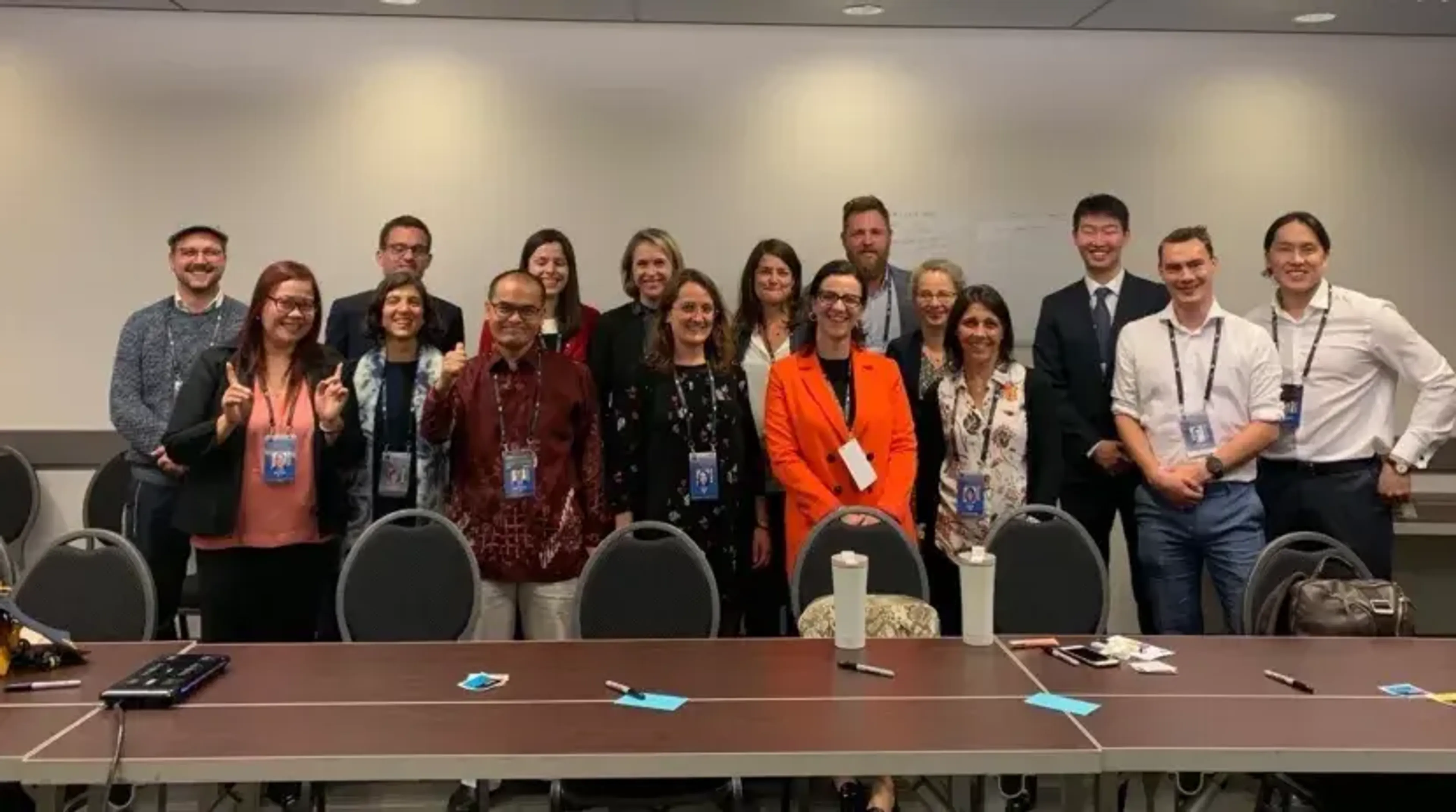Talking about teams at OGP
Emily Middleton worked as a Partner at Public Digital from September 2018 until July 2024 and set up Public Digital’s international practice, working with multilateral development banks, UN agencies, and philanthropies.

A couple of weeks ago, Andrew and I attended the global Open Government Partnership summit in Ottawa. We were invited to host a workshop for a group of government representatives, telling stories about digital teams – how to set them up, and how to make sure they thrive.
It wasn’t us doing all the talking. There were great contributions from those working on the ground in Etalab in France, and the Administrative Modernization Agency (AMA) in Portugal.

With the attendees coming from places as diverse as Scotland and Canada through to Indonesia and the Philippines, you’d expect the conversation to focus on the different challenges countries face. In fact, many of the toughest problems to tackle turn out to be the same everywhere.
Bringing technical skills into government requires creativity and new thinking. Every government struggles to bring in the specialists they need to transform public services. Countries that have made quick progress have had to come up with innovative workarounds. For example, Etalab has developed short, 10-month contracts for Public Entrepreneurs in order to recruit and deploy digital talent quickly, and Portugal has established a new Digital Competencies Centre.
Digital teams only thrive in organisations that adopt internet-era ways of working. Among the blockers to building digital teams that were suggested by the group, procurement, investment and culture were mentioned most. All of these were put forward as functions where traditional, requirements-driven and relatively slow ways of working created tension with the agile, open and user-led culture expected in good digital teams.
The role of digital teams needs to carefully balance delivery with coordination. There was a lively debate within the group about whether the role of digital teams should emphasise coordination of activity across government, or the delivery of frontline services to citizens. While there was disagreement about where to focus, there was consensus that digital teams needed to be capable of doing both.
Finally, and obviously, digital teams suffer without strong leaders. While the biggest impact of digital teams comes from the products and services built by teams of practitioners, ensuring those people are empowered to deliver while having the cover to protect them from bureaucracy and distraction is essential.
There’s no such thing as a comprehensive list of ingredients to guarantee a digital team will succeed; context matters. But from our time in Ottawa, we left confident that there are plenty of things no government would regret doing – and that there are more and more countries are starting to try.